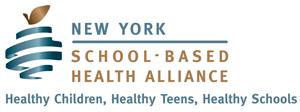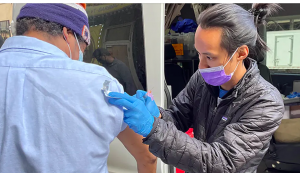Direct Relief today announced the first round of grants awarded from its recently established Fund for Health Equity.
“This initial round of $1.8 million in grants from the AbbVie Foundation and Direct Relief recognizes organizations that are in the trenches every day supporting their communities which are impacted the most in terms of health disparities,” said Dr. Byron Scott, MD, MBA, Co-Chair of the Fund for Health Equity and Board Director of Direct Relief and Chair of its Medical Advisory Council. “I am humbled that both AbbVie and Direct Relief can help these organizations with their goals of improving health and wellness, including eliminating health inequities.”
Direct Relief’s Fund for Health Equity mobilizes financial resources for community health centers, free and charitable clinics, and other nonprofit organizations focused on non-clinical interventions that affect a person’s health – commonly known as the social determinants of health, these factors include a person’s physical, social, political, cultural, and economic environments. The AbbVie Foundation seeded the fund with a $10 million donation.
“We are proud to support Direct Relief’s Fund for Health Equity and these community-focused organizations that will lead the way in improving care in many communities,” said Laura Schumacher, Vice Chairman, External Affairs and Chief Legal Officer, AbbVie. “This is just the first step as the Fund continues to identify more organizations across the country that are addressing health disparities through evidence-based programs and interventions.”
The first round of funding will support the following ten health centers’ and free and charitable clinics’ projects, including workforce diversification, reducing health disparities, and establishing or expanding innovative models of care:
Institute for Family Health – New York: The grant will support Training for Change, a five-month workforce development project to recruit, train, and employ a first cohort of five community health professionals whose lived experience represent those of the health clinic’s patient population (45% Black; 36% Latinx). The project takes place at the Family Health Center of Harlem, the largest of the Institute’s NYC centers, which serves the high-need communities of East and Central Harlem and the South Bronx.
To continue reading, CLICK HERE.

